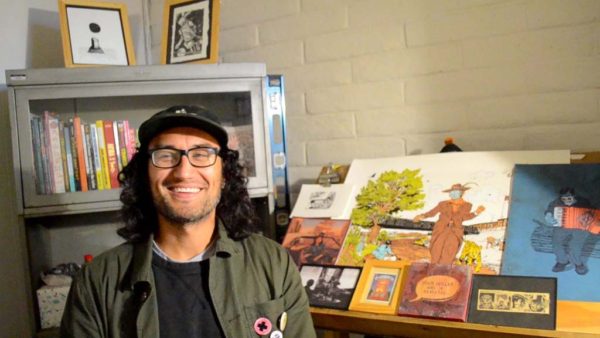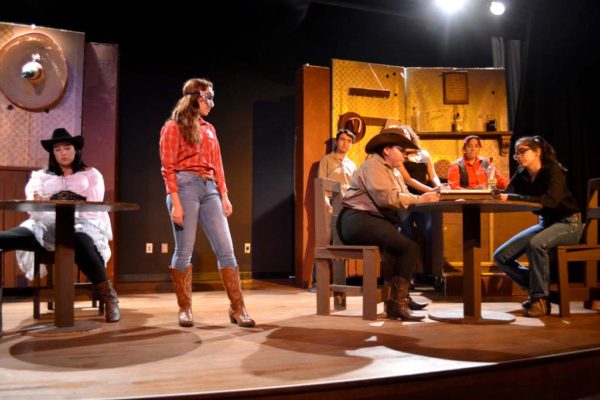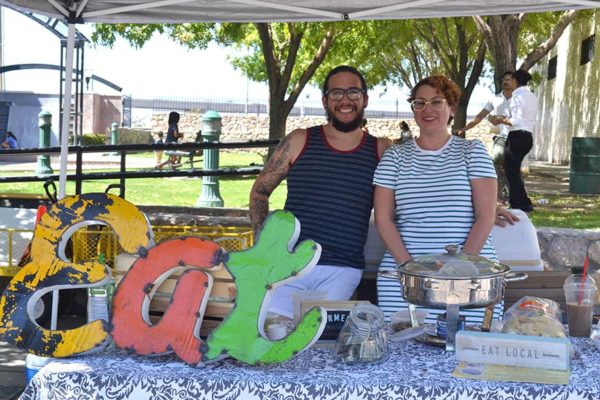This artist is asking how border residents think about air, water, land
|
Zeke Peña, an illustrator and cartoonist has spent most of his work as an artist living on “la frontera,” the border, reflecting the reality and issues faced by Chicano and Mexican-American generations. “I think about how the border identity is binary. It isn’t about this side or that side, it’s way more complicated. But that’s the beauty of it,” he says. Sitting in battered, squeaky wood chair in front of a drafting table that displays his work in his studio, the 35-year-old Peña looks the part of a committed artist with his black-rimmed glasses and his shoulder-length dark curly hair and black ball cap.



